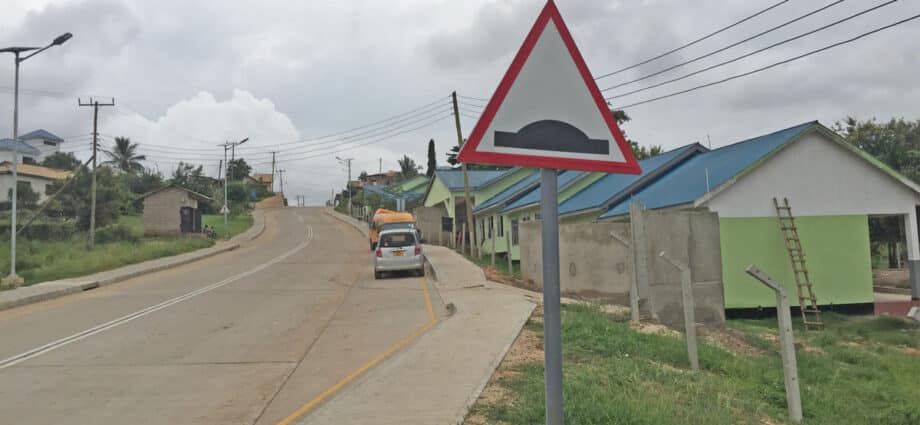
The recently concluded World Bank Land Conference (LC2025) (from 5 to 8 May 2025) was a fabulous chance to meet consultants and officials who have, in one way or the other, worked on Tanzania’s land and urban development problems.
One fact that became obvious is that there have been many donor-supported projects, but these were just that: projects. They came, and when their time was up, they went and were literally forgotten.
At this Conference, I met consultants and officials who worked on the SPILL Project in the late 1990s, early 2000s.
It may be difficult to find, in government, people who remember what SPILL was. It stands for “Strategic Plan for the Implementation of Land Laws”.
SPILL I was implemented and gave us, inter alia, the Land Act, Village Land Act and the Courts (Land Disputes Resolution) Act. SPILL II was not implemented.
Consultants and officials who worked on the Land Tenure Support Project (LTSP) (2016-2019) were also present.
The project was supposed to ensure land titling in three districts of Kilombero, Ulanga and Malinyi, for the purpose of improving transparency and efficiency in land administration.
The Project closed shop and nobody talks about it anymore. This had been implemented hand in hand with the Land Tenure Assistance Programme (LTA) (2015-2019) which was part of a larger ‘Feed the Future’ initiative.
LTA goals were ‘to clarify and document land ownership, support local land use planning efforts, and increase local understanding of land use and land rights in Tanzania’. You do not hear reference to the LTA Programme in ministerial circles, any more.
The current land tenure-related programme going on in Tanzania is the Land Tenure Improvement Project (LTIP). We have heard much about it in the media in the past 5 years.
Officials and Consultants related to the LTIP were there in full force at the World Bank Land Conference.
The Project was approved in 2021 with the World Bank committing US$ 150 million to continue property rights formalization.
The project’s objective is ‘to strengthen the national land administration system and increase tenure security in selected areas for both men and women’ and specifically to ‘scale up the direct implementation of rural mass certification and issuance of CCROs in select areas of the country’.
There was a sombre mood with regard to the LTIP since it is being cut short (no idea why). It was supposed to run from 2021 to 2027 It is however ending in June this year (2025).
In recent times the Project has been shown as the flag carrier for the envisaged improvements in the Land Sector.
Now that it is ending, it will be archived and may be succeeded by another one, who knows? One official was confident that Tanzania will find resources to keep the Project running.
On the urban scene projects that have come and gone include the Sites and Services and Squatter Upgrading Projects of the late 1970s. early 1980s; and the Sustainable Dar es Salaam Project (SDP) (1992-2003), which was part of a larger global UN-Habitat initiative, aiming to demonstrate the feasibility of integrating environmental planning into urban development.
A decade and half after the SDP came the (current) Dar es Salaam Metropolitan Development Project (DMDP) which aims to improve connectivity and mobility within the city while reducing flooding through structural and non-structural measures.
Phase I was launched in 2017, and Phase II in 2024. One of its visible achievements is the connecting infrastructure and drains that have been constructed in many parts of the city of Dar es Salaam.
DMDP officials were there at the World Bank Land Conference. What will come after DMDP? Time will tell.
In between SDP and DMDP came the Community Infrastructure Upgrading Project (CIUP) which had an implementation period from 2005 to 2012.
This project focused on upgrading infrastructure and services in urban areas, including roads, footpaths, drainage, sanitation, solid waste, and streetlights. Nobody talks about it anymore.
A good number of these projects come in the form of piloting, and it is always hoped that scaling will be undertaken. This is rarely the case.
The list of donor funded projects on land and urban development that have come and gone is quite long.
Where the projects involve capital assets building, such as construction of roads, drains and infrastructure networks, there is something to look back to once the project has come to an end.
In some cases, however, projects involve “software” such as capacity building. Such projects get easily forgotten.
It is recommended that donor support should go to projects that the recipient country has planned or is implementing. That way, support will be part of sustainability of what is going on.














